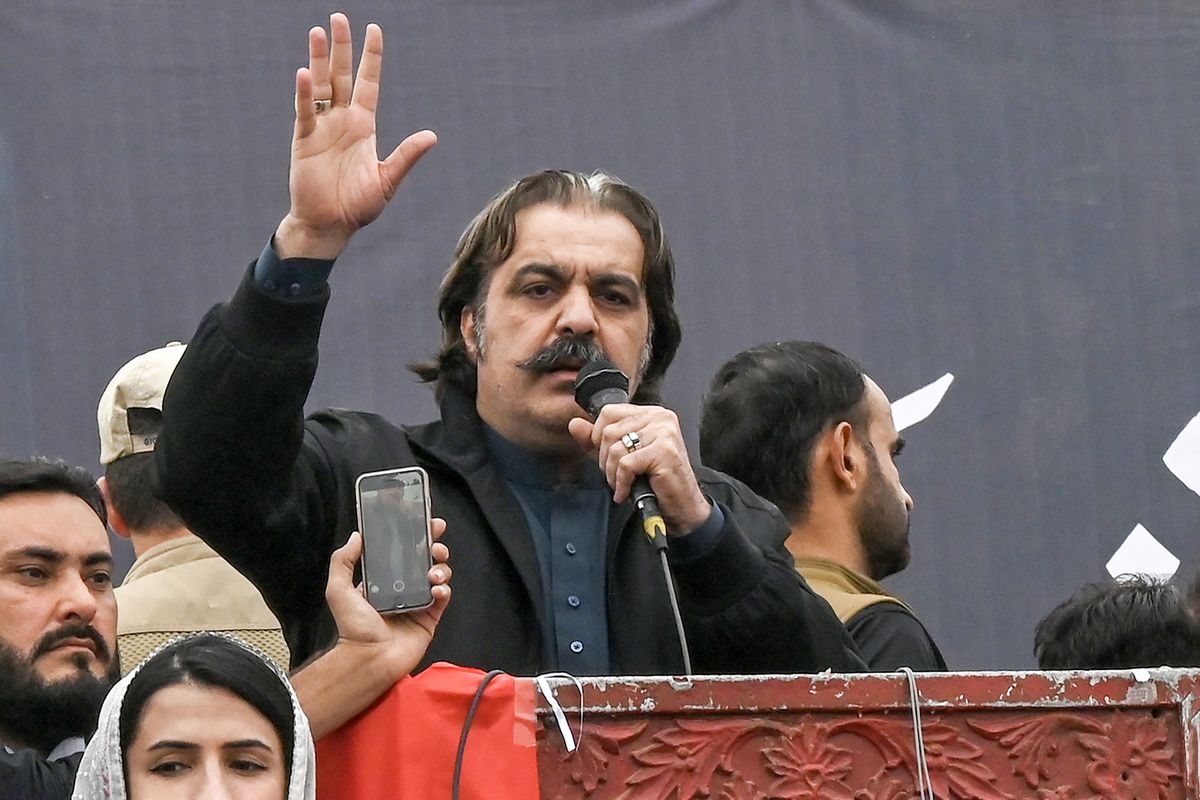Khan's close aide challenges terrorism charges over Islamabad protest
Petition argues exercising constitutional right to protest should not be equated with terrorism

Asma Kundi
Producer, Islamabad
Asma Kundi is a multimedia broadcast journalist with an experience of almost 15 years. Served national and international media industry as reporter, producer and news editor.

Gandapur argues peaceful protest rights shouldn't be labeled as terrorism
Opposition party leaders including former PM Khan face similar charges
Government response included container barriers and internet shutdowns
The Chief Minister of Pakistan's northwestern province, Khyber Pakhtunkhwa, Ali Amin Gandapur, on Wednesday challenged terrorism-related charges against him in the capital city's high court.
In the aftermath of the November 24 protest, where supporters of the opposition party Pakistan Tehreek-e-Insaf (PTI) gathered to demand the release of their jailed leader and former Prime Minister Imran Khan, law enforcement authorities in Islamabad and Rawalpindi filed multiple cases against the PTI leadership. Those named in the cases include Khan, his wife Bushra Bibi, and Chief Minister Ali Amin Gandapur.
The cases, which include terrorism charges, were filed after the protests turned violent, with clashes between demonstrators and security forces resulting in multiple casualties on both sides.
Removal of terrorism charges sought
The cases were extensive in scope, registered under multiple provisions of the Anti-Terrorism Act, Pakistan Penal Code, and the Peaceful Assembly and Public Order Act. Law enforcement filed them at numerous police stations including Secretariat, Shahzad Town, and Banigala, collectively naming more than 150 individuals as suspects.
Through his legal counsel, Haji Ajmal Khan Mohmand, Gandapur seeks removal of the terrorism charges from the first information report (FIR) registered at the Secretariat Police Station.
His petition argues that exercising the constitutional right to protest should not be equated with terrorism, even if demonstrations become unruly.
He has urged the court to address this alleged mischaracterization of his actions, contending that the case against him lacks merit, arguing that he was merely exercising his constitutional right to peaceful protest.
He maintains that law enforcement authorities misconstrued this legitimate democratic expression and wrongfully registered it as a terrorism case. Through his petition, Gandapur has requested the court to suspend both the FIR and its terrorism provisions pending a final verdict in the matter.
'Right' to 'protest'
This legal challenge emerges against the backdrop of broader constitutional concerns regarding citizens' fundamental rights in Pakistan.
PTI maintains that their attempt to protest at D-Chowk was a legitimate exercise of constitutional rights, and that the government's preventive measures - including placing shipping containers as barriers, shutting down mobile internet services, and denying access to the protest site - were unconstitutional restrictions on citizens' right to peaceful assembly.
The Constitution, through Articles 17, 19, and 4, enshrines essential freedoms including the right to association, freedom of expression, and equitable treatment under law. While these provisions guarantee the right to protest, such demonstrations must remain within legal boundaries.
Simultaneously, the state bears the responsibility to ensure these constitutional rights are not unjustly restricted or violated.










Comments
See what people are discussing